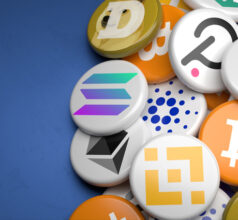DeFi, short for decentralized finance, is an emerging concept that has gained significant traction in recent years. As the name suggests, DeFi refers to a financial system that operates on decentralized blockchain networks, primarily driven by smart contracts. Unlike traditional finance, which is controlled by centralized intermediaries such as banks and governments, DeFi aims to create an open and accessible financial ecosystem that is available to anyone with an internet connection.
What is DeFi and How it Works?
The core principle of DeFi lies in its commitment to decentralization. By utilizing blockchain technology, DeFi eliminates the need for intermediaries by creating a trustless network where transactions can be conducted directly between users. This not only reduces the costs associated with traditional intermediaries but also enhances transparency and security. All transactions on a DeFi platform are recorded on a public ledger, which can be audited and verified by anyone, ensuring that users can trust the system without relying on a centralized authority.

One of the most significant aspects of DeFi is its ability to provide financial services to the unbanked and underbanked populations. According to the World Bank, nearly 1.7 billion adults worldwide do not have access to banking services, leaving them excluded from the global financial system. However, with DeFi, all you need is a smartphone and an internet connection to access various financial services, such as lending and borrowing, savings accounts, and even insurance. This inclusionary approach has the power to empower individuals in developing countries and eliminate the dependency on traditional financial institutions.
DeFi opens up new avenues for innovation and financial experimentation. Since DeFi platforms are built on open-source protocols, developers can build and deploy their own financial applications on top of existing infrastructure. This permissionless nature of DeFi fosters creativity and encourages developers to create unique and innovative decentralized applications (dApps). Such dApps can potentially revolutionize traditional financial services, such as lending, insurance, and asset management, by removing the need for intermediaries and addressing the limitations of traditional systems.
The rise of DeFi is not without its challenges. One of the primary concerns associated with DeFi is the technology’s relative infancy, which exposes it to risks such as hacking, bugs, and security vulnerabilities. Given the significant amounts of money flowing through DeFi platforms, security becomes paramount to protect user funds. Additionally, as DeFi operates in an unregulated space, it also opens up possibilities for fraudulent schemes and scams. These challenges highlight the need for robust security protocols, thorough audits, and regulations that can protect users and ensure the sustainable growth of the DeFi ecosystem.
DeFi represents a paradigm shift in the way we view and access financial services. By embracing decentralization, DeFi has the potential to create an inclusive, transparent, and secure financial system that can benefit individuals worldwide. However, it is essential to address the challenges associated with DeFi, such as security and regulation, to ensure its long-term success. As DeFi continues to evolve, it will be exciting to see the various applications and innovations that will emerge, ultimately reshaping the financial landscape as we know it.
What is your reaction to this?

 I liked it
I liked it Wonderful
Wonderful Thanks
Thanks Good
Good Hahaha !
Hahaha ! Incredible
Incredible Interesting
Interesting Wrong
Wrong

